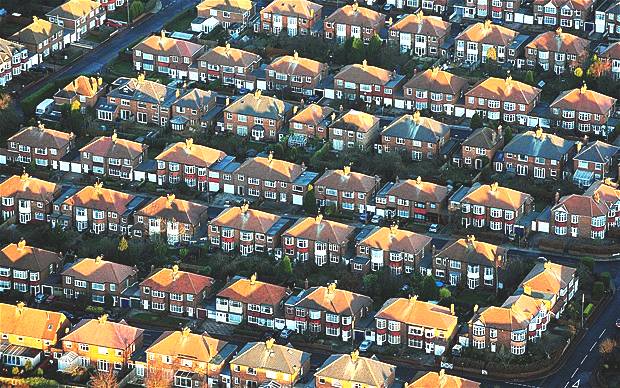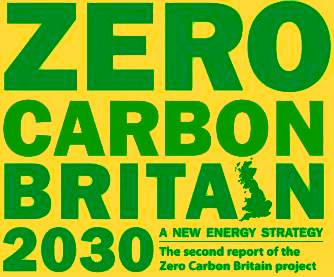|
COUNCILS on ZERO CARBON INTEGRATION
|
|
|
ROLLING STOCKS OF AFFORDABLE LAND - EXTRACT Draft National Planning Policy Framework
"The purpose of planning is to help achieve sustainable development.
Sustainable means ensuring that better lives for ourselves don’t mean worse lives for future generations.
Sustainable development is about change for the better, and not only in our built environment. Our natural environment is essential to our wellbeing, and it can be better looked after than it has been. Habitats that have been degraded can be restored. Species that have been isolated can be reconnected. Green belt land that has been depleted of diversity can be refilled by nature – and opened to people to experience it, to the benefit of body and soul.
Our historic environment – buildings, landscapes, towns and villages – can better be cherished if their spirit of place thrives, rather than withers.
Our standards of design can be so much higher. We are a nation renowned worldwide for creative excellence, yet, at home, confidence in development itself has been eroded by the too frequent experience of mediocrity. So sustainable development is about positive growth – making economic, environmental and social progress for this and future generations. The planning system is about helping to make this happen.
Development that is sustainable should go ahead, without delay - a presumption in favour of sustainable development that is the basis for every plan, and every decision. This framework sets out clearly what could make a proposed plan or development unsustainable.
In order to fulfil its purpose of helping achieve sustainable development, planning must not simply be about scrutiny. Planning must be a creative exercise in finding ways to enhance and improve the places in which we live our lives."
Rt Hon
Greg Clark MP
Affordable and sustainable - a nice example of a traditional Gypsy wagon that council's are doing their best to eradicate. Silly sausages! This is one way to reduce housing shortages with a zero carbon footprint
VILLAGES OF THE FUTURE
It is proposed that: 1. self build cooperatives, 2. Local authority housing and 3. Social landlord schemes
could base their business models on the following 100 unit village development:
East <- North -|- South -> West
VILLAGE 100 - A Utopia Tristar © self-build or social housing project. One hundred affordable units, including shops in a central village square. The results of intelligent integration (energy implications) and the development costs involved, etc, have yet to be studied.
TOWNS OF THE FUTURE
And that town extensions, or fresh towns might be created by combining 9 Village modules as per the drawing below. One hundred and fifty such developments spread across the United Kingdom, would meet current Government targets for 150,000 new affordable homes for 2013.
North . West -- East . South
TOWNSHIP 900 - A Utopia Tristar © council or social housing project. Nine hundred affordable units, including: a) Garage servicing b) Community hall c) Supermarkets d) Sports complex e) Restaurants & cinema f) Surgery g) Bank & post office h) School & library i) Cricket & football pitches - in the village squares. You are never far from something you may want.
COUNCILS BEHAVING BADLY
In May 2012, the Government highlighted that 232,000 new households are forming in England each year, but this new research has revealed that local authorities in England have now reduced their housing targets to around 160,000 per annum, a reduction of 13% from the Regional Spatial Strategies (RSS) housing target set for England. This equated to around 185,000 new homes per year, revealing a large discrepancy between the three figures of over 70,000 homes.
The experts’ recommendations which were delivered to the Government are:
*
Release green belt land in the constricted South East and pump prime development in the North
groups (members) within their communities .
their areas.
return - NOTE: Any increase is fees is counter productive when it comes
to affordability.
local demands. The experts conclude: ‘Our recommendations for the Government aim to support housing development quickly as there is clearly a continued need for quality housing and economic growth.”
https://www.realestate.bnpparibas.co.uk/government-could-miss-housing-target-by-85-000-homes
SMART HOUSES
Properly integrated buildings could become the power stations of the future. We are developing our system bottom-up with smart energy management for warmth and power, that our E-Pax units may be integrated as communities, taking into consideration charging facilities for electric vehicles at home.
RE-PAX SMART ENERGY STORAGE
Our smart heat store system is the subject of a patent application. No other flat-pack house or mobile home includes this technology. Enquiries from manufacturers of prefabricated homes and from construction companies are welcome.
JOIN IN
Join us in the drive for a green economy. Email or call to register your interest in these exciting sustainable developments for a better Britain. We are actively seeking development partnerships with a view to forming a consortium concerning bids for European, Canadian and other international research funding grants.
(Prices liable to fluctuation due to volatility of the international timber market)
Hundreds of clay caves that are energy hungry.
|
|
|
This website is Copyright © 2013. All rights reserved. All other trademarks are hereby acknowledged. Contact Us www.cherrymortgages.com |










